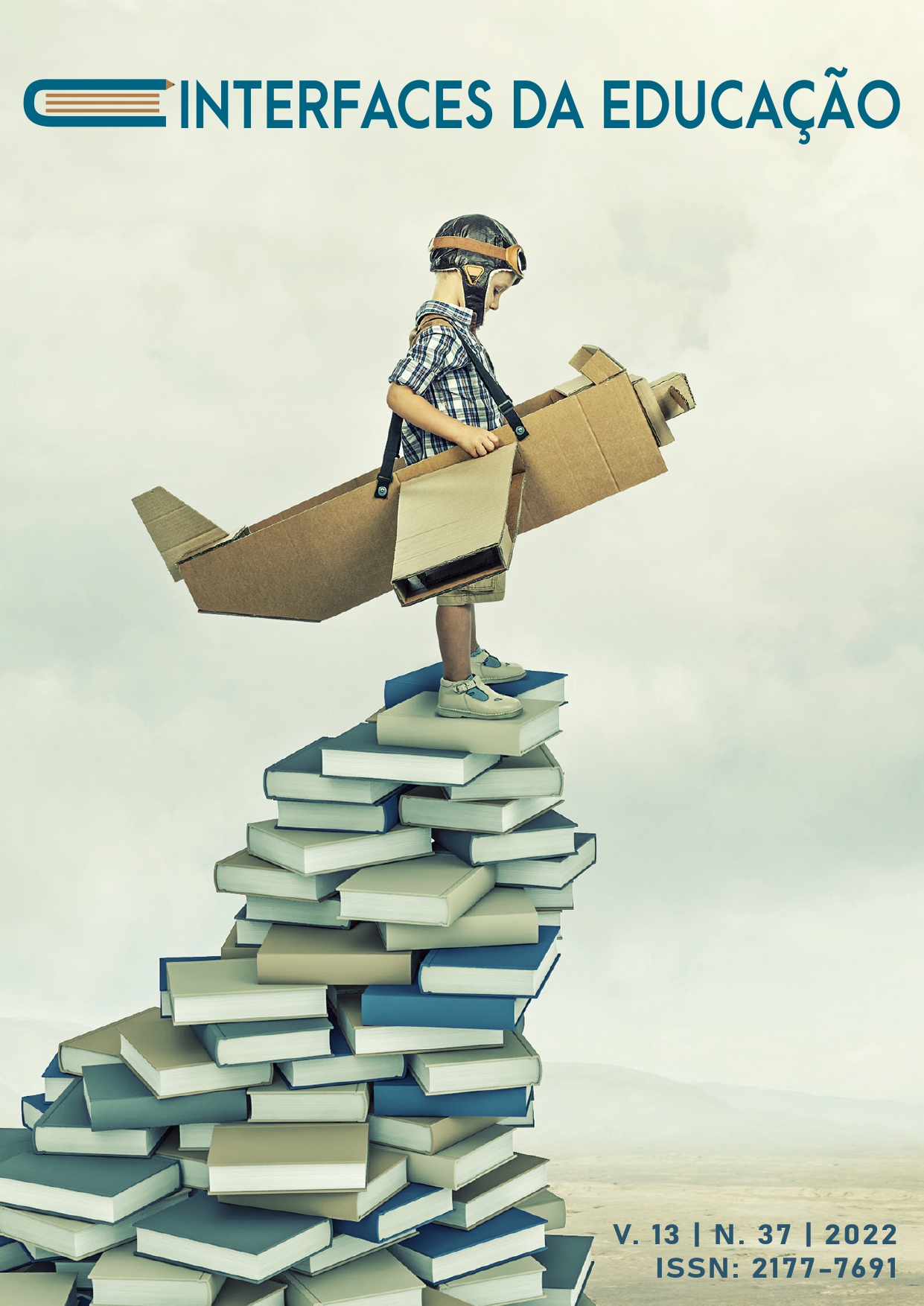Digital Posters For Digital Literacy Development
DOI:
https://doi.org/10.26514/inter.v13i37.5131Keywords:
Aprendizagem de Habilidades, Formação de professores, Informática e educação, Literacia digitalAbstract
This article deals with the construction of digital posters in the classroom, in teacher education, as a differentiated approach, exercising aspects related to Digital Literacy. The material of this article is an extraction of the activities and reflections of the fourth meeting, which followed the reading of the text referring to the concept of Digital Literacy, which served as a support to the development of digital posters analyzed in this article. The research is positioned in a qualitative bias and was developed during the training of mathematics teachers, composed of synchronous and asynchronous meetings. The training that gave rise to the analyzed data uses several technologies, with the bias of authorship and critical development defended in the concept of Digital Literacy. As a result, we have 12 digital posters that highlight aspects such as Digital Literacy skills and 5 criticalities, which is a central feature of the Digital Literacy concept. We understand that although the speech and position of the teachers, shown during the training, already indicate a reflection in their practice, when they realize that among the skills there is no order of importance or attributes, but all have their relevance and that they must be worked on. according to the possibilities offered by the activity and the teacher's goal.
References
BUCKINGHAM, D. Defining Digital Literacy—What Do Young People Need to Know About Digital Media. In: Digital Literacies—Concepts, Policies and Practices. New York: Peter Lang Publishing, Inc., 2008. p. 263–276. DOI: https://doi.org/10.18261/ISSN1891-943X-2006-04-03
CHIZZOTTI, A. A pesquisa qualitativa em ciências humanas e sociais: evolução e desafio. Revista Portuguesa de Educação, v. 16, p. 221–236, 2003.
ERSTAD, O. Trajectories of Remixing: Digital Literacies, Media Production and Schooling. In: Digital Literacies—Concepts, Policies and Practices. New York: Peter Lang Publishing, Inc., 2008. p. 180–202.
ESTEBAN, M. P. S. Pesquisa Qualitativa em educação. São Paulo: Artmed, 2010.
GOLDENBERG, M. A arte de pesquisar: como fazer pesquisa qualitativa em Ciências Sociais. 5a ed. Rio de Janeiro: Record, 2005.
JENKINS, H. Convergence Culture. Click Nothing, p. 308, 2006.
JENKINS, H. et al. Confronting the Challenges of Participatory Culture. Massachusetts: MIT Press, 2009. v. 21 DOI: https://doi.org/10.7551/mitpress/8435.001.0001
KELLNER, D.; SHARE, J. A Mídia-Educação Crítica e a Democracia Radical. In: APPLE, M. W.; AU, W.; GANDIN, L. A. (Eds.). . Educação Crítica: Análise Internacional. São Paulo: Artmed, 2011. p. 315–330.
MARTIN, A. Digital Literacy and the “Digital Society”. In: Digital Literacies—Concepts, Policies and Practices. New York: Peter Lang Publishing, Inc., 2008. p. 151–176.
PAPERT, S. A máquina das crianças. Porto Alegre: Editora Artes Médicas Sul, 1994.
RANTALA, L.; SUORANTA, J. Digital Literacy Policies in the EU— Inclusive Partnership as the Final Stage of Governmentality? In: Digital Literacies—Concepts, Policies and Practices. New York: Peter Lang Publishing, Inc., 2008. p. 91–117.
SILVA, E. M.; RAMOS, F. M.; BATISTA, J. C. Desafios no desenvolvimento de competências comunicacionais nos cursos de licenciatura das universidades do Nordeste brasileiro. Ciência da Informação, v. 45, n. 2, 2016.
Downloads
Published
How to Cite
Issue
Section
License
Autores que publicam nesta revista concordam com os seguintes termos:
a. autores mantém os direitos autorais e concedem à revista o direito de primeira publicação, com o trabalho licenciado simultaneamente sob uma Licença Creative Commons Attribution após a publicação, permitindo o compartilhamento do trabalho com reconhecimento da autoria do trabalho e publicação inicial nesta revista;
b. autores têm autorização para assumir contratos adicionais separadamente, para distribuição não-exclusiva da versão do trabalho publicada nesta revista (ex.: publicar em repositório institucional ou como capítulo de livro), com reconhecimento de autoria e publicação inicial nesta revista;
c. autores têm permissão e são estimulados a publicar e distribuir seu trabalho online (ex.: em repositórios institucionais ou na sua página pessoal) a qualquer ponto antes ou durante o processo editorial, já que isso pode gerar alterações produtivas, bem como aumentar o impacto e a citação do trabalho publicado.


